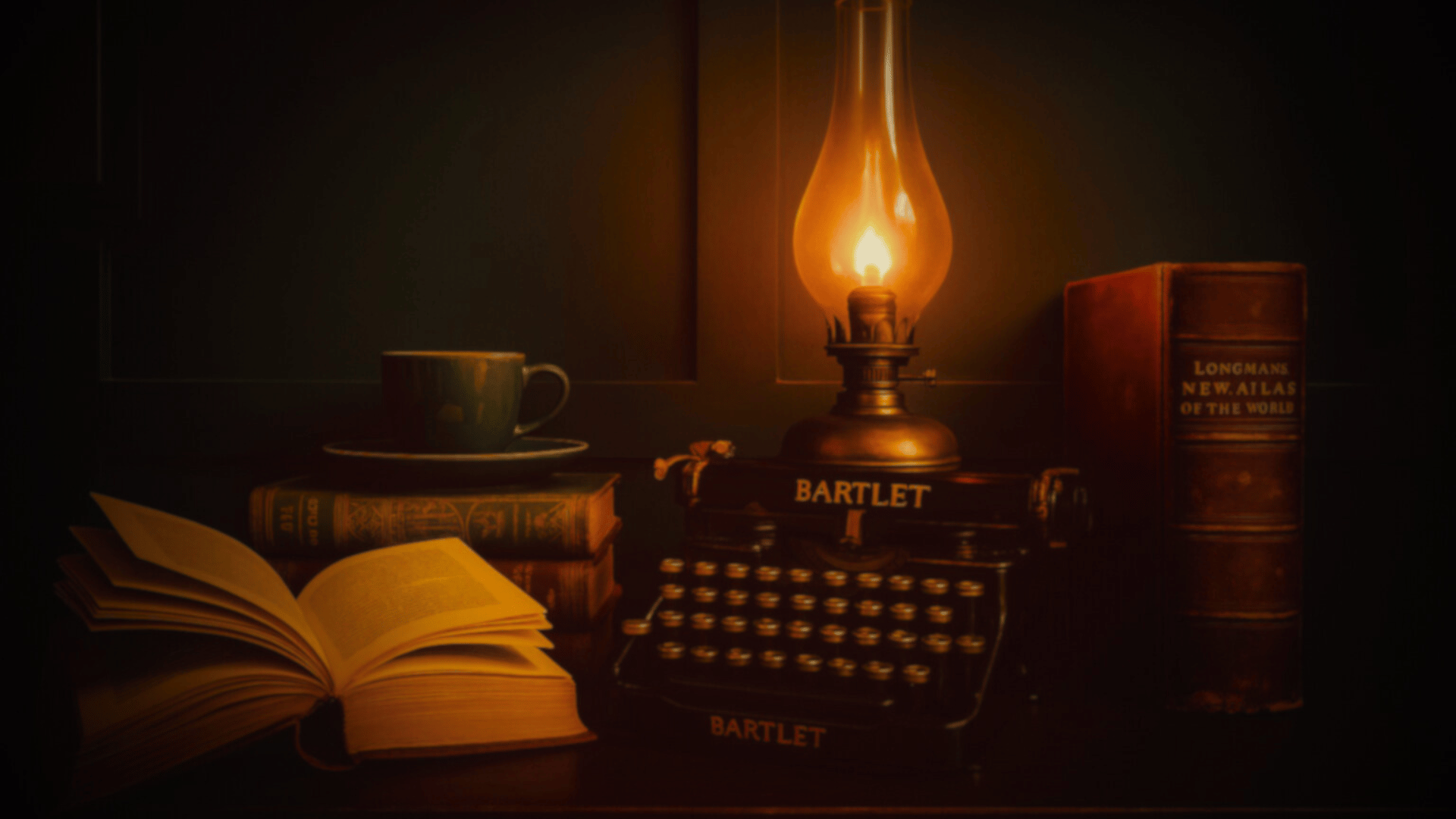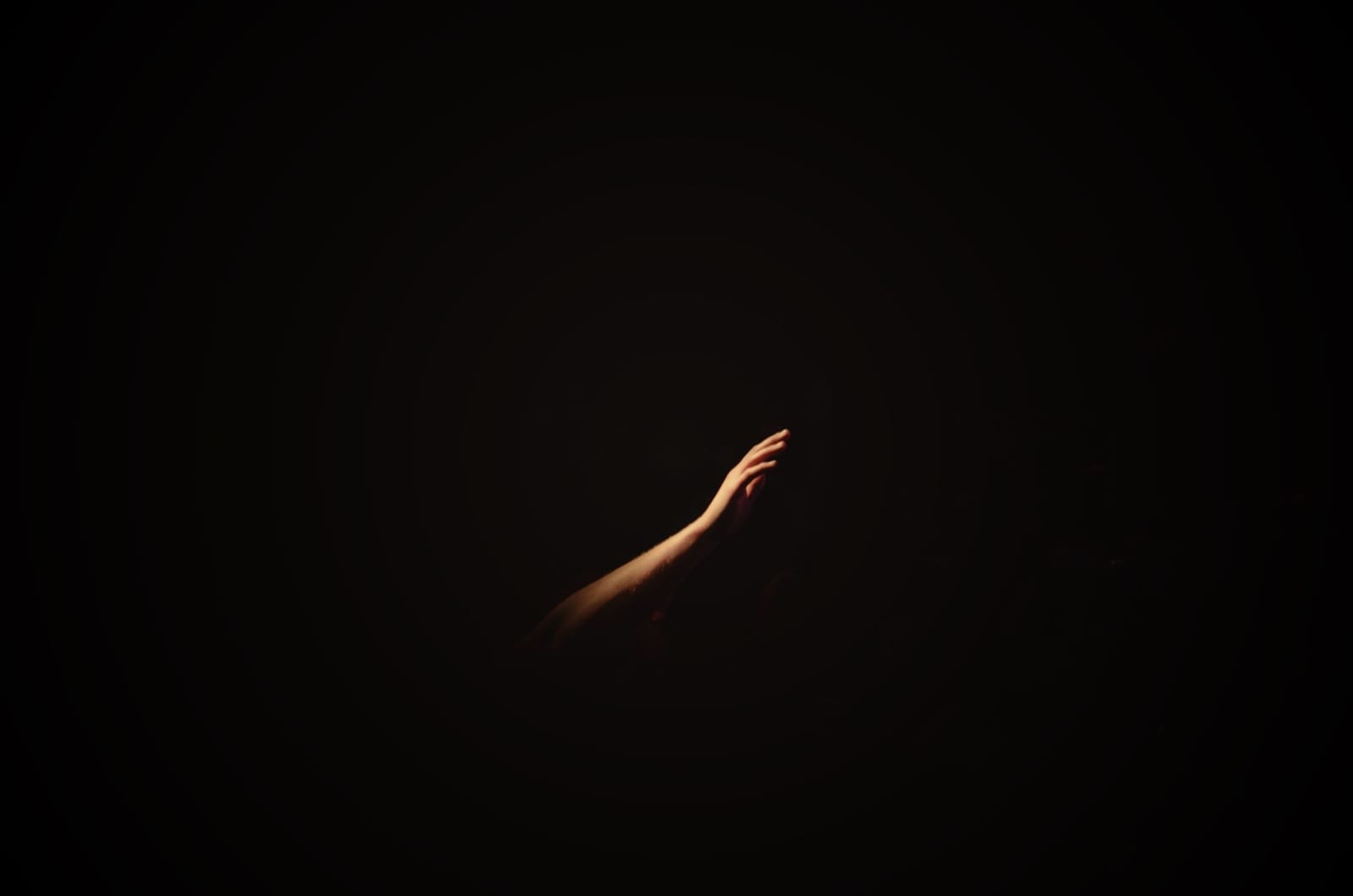Why recognizing evil as absence, not presence, might be our most urgent moral task
I'm watching a train wreck in slow motion—a dangerous misunderstanding and miscalculation of human nature with tragically epic consequences: believing that evil is relative, a matter of perspective, a cultural construct that shifts with time and place.
This misunderstanding—that what counts as evil depends on who's asking—might be the greatest threat to human health and flourishing we face.
Once we lose the ability to recognize evil as real, objective, and undeniable, we lose the ability to recognize it at all.
Last month at a work dinner, a colleague went on about empathy being a Western hang-up, conscience nothing more than social programming. She waved her glass as she talked, animated, confident.
When the conversation turned to violence in our city—a series of attacks on homeless camps, the potential for occupation by the national guard in the name of safety—her response was pitch-perfect.
She said all the right things, but something was off.
Not in her words but behind them. A flatness where feeling should live.
Later, I mentioned this to a psychologist friend who studies moral development. She laughed, but not happily. "I see this all the time now," she said. "People who know exactly what empathy looks like but can't actually feel it. It's like they've memorized the lines of a play, but can’t perform the story."
We've all felt it—that chill when someone's warmth doesn't quite reach you, when their sympathy sounds rehearsed as if pre-recorded.
It's not what's there but what isn't: no flash of recognition at another's pain, no resonance when suffering enters the room.
That instinctive step backward we take? That's not prejudice or social conditioning.
That's recognition. We're sensing a void where something essential should be.
Augustine knew this sixteen hundred years ago. Wrestling with the problem of evil in his Confessions, he had an insight that still holds: evil isn't a thing but an absence. Like darkness without light, cold without heat. "Disease and wounds," he wrote, "mean nothing but the absence of health."
Not a force attacking the body, but health failing to be present. Turns out he was more right than he could have known.
Neuroscientists have studied this in the paralimbic system of psychopaths—where empathy and moral decision-making live—that shows markedly reduced gray matter.
When they imagine others suffering, the regions that should light up with concern stay dark. Meanwhile, their pleasure centers activate.
The brain scan suggests exactly what Augustine intuited: empty space where human connection should be.
When I was younger, I thought evil required intention, malice, or some dark, hidden purpose. Then I started noticing how ordinary people participated in cruelty without even recognizing it as cruel.
They'd mistake emptiness for "being realistic," absence of compassion for "tough love."
The research backs this up: those who commit the worst acts show profound deficits in moral reasoning. They're stuck at what Lawrence Kohlberg called pre-conventional morality—the level of young children who only consider punishment and reward.
Not an alternative moral system, but an absence of moral development.
You may know about the Stanford Prison Experiment—how quickly guards turned cruel, proving we're all capable of evil, right?
But Zimbardo's interpretation focused on how situations can override individual personality. The guards who became abusive weren't revealing some inner evil—they were responding to environmental pressures that encouraged dehumanization of the prisoners.
When people are given unchecked authority and implicit permission to treat others as less than human, some will do exactly that. The study showed what happens when situational forces break down our normal barriers to treating others cruelly.
The guards who became abusive didn't transform into monsters. They showed specific, measurable deficits in moral imagination and submission to social pressure.
In short, they literally couldn't see prisoners as fully human.
The experiment didn't prove that evil lives in everyone.
It proved what happens when empathy—aka *good—*goes missing.
This is why moral relativism terrifies me.
If we can't say what good is—if compassion and dignity are just cultural preferences, like cuisine or fashion—then we can't recognize when they're absent.
In other words, we don't just come to accept evil—we become blind to it.
A society that endlessly debates whether empathy "really" matters can't spot the psychopath who lacks it completely.
When conscience becomes just another opinion or social media trend, we lose the ability to see those operating without one objectively.
I recall a recent local public meeting where someone argued that teaching empathy was "ideological indoctrination." A city official dismissed concerns about vulnerable populations as "virtue signaling."
These weren't just political disagreements. They revealed something worse—a growing individual and collective inability to recognize that some values aren't up for debate, that their absence causes real harm.
Hannah Arendt went to Jerusalem in 1961 expecting to see evil incarnate in Adolf Eichmann. Instead, she found something that disturbed her more: a man completely lacking the capacity for moral thought.
He wasn't driven by hatred. He had no ideology to speak of.
What he had was what Arendt called "thoughtlessness"—a total absence of the inner dialogue that creates and maintains conscience.
His evil was banal precisely because it came from vacancy, not villainy.
"The trouble with Eichmann," she wrote, "was precisely that so many were like him."
This is how tyrannies—evil—take hold. Not through dramatic, performative acts—but by eroding our ability to recognize goodness and its absence.
The shift happens gradually. Yesterday's unthinkable becomes today's controversial, and then tomorrow's normal.
I remember seeing a community meeting about homeless encampments. The discussion started with safety and resources.
Within an hour, people were debating whether compassion itself was "practical." When someone brought up basic human dignity, they got laughed at.
The room had shifted from asking how to help to questioning whether helping mattered.
Think about how authoritarianism works.
First, it attacks the very idea of truth. Floods every channel with "alternative facts" until people can't tell what's real.
Then it reframes basic human responses—horror at cruelty, instinct to protect the vulnerable—as mere opinions, no better or worse than any other.
In the fog of moral ambiguity, those without principles move freely.
Their emptiness becomes invisible because we've lost the ability to see it for what it is.
The research on moral education is sobering but not hopeless. Studies show that kids who don't learn empathy when they are young struggle to develop it later.
But those same studies show moral imagination can be cultivated through specific practices: taking others' perspectives, meeting moral exemplars, reflecting on ethical problems, and interacting with those different from themselves.
The capacity for good isn't innate or guaranteed. It has to be built, maintained, and practiced.
Without that practice, effort, and systemic reinforcement, it remains absent.
What keeps me up at night is how easily I might miss it—how any of us could mistake hollowness for depth if we've forgotten what fullness feels like.
I think about conversations where I've let cynicism pass for wisdom, where mockery of idealism went unchallenged.
Each time we confuse skepticism with nihilism, each time we treat questioning values the same as abandoning them, we lose a little more ability to tell the difference between people struggling with moral complexity and people who simply lack moral capacity and interest.
Robert Hare created the Psychopathy Checklist, the standard tool for identifying psychopaths. When I interviewed him years ago, he said something I'll never forget:
"Everyone wants to understand what makes psychopaths different. But that's the wrong question. The real question is what makes most people good. Empathy, conscience, recognizing others as real—these aren't defaults. They're achievements. They can fail to develop. They can be lost."
We're standing at a precipice.
Behind us is the eroding ability to recognize both fullness and emptiness, good and its absence.
Before us is the spreading blindness that mistakes the void for just another point of view.
This is practical philosophy as it determines whether we can identify the hollow ones among us before their emptiness spreads.
Last week, I remember a memorial for a teacher who'd spent forty years cultivating moral imagination in students.
Person after person talked not about what she'd taught but who she'd been: genuinely concerned, intellectually humble, morally courageous.
A former student said something that stuck: "She showed us empathy wasn't just feeling bad for people. It was a way of knowing—understanding what's real about others and ourselves."
Her life proved that fullness is recognizable, that moral substance has weight you can learn to feel.
But beyond her circle of family, friends, and former students, she’d be labeled “woke”, tossed aside, and forgotten.
Understanding evil requires understanding good.
If that understanding gets blocked, corrupted, or lost, we can't recognize either one.
The door then opens to a particular kind of evil—the hollow kind. Empty. Devoid of principles, empathy, or conscience.
Make no mistake. The stakes are high—and they keep rising.
Technology amplifies both connection and isolation.
Algorithms spread emptiness as efficiently as substance.
Our ability to distinguish the hollow from the full has become a survival skill.
We need to recognize not just obvious cruelty but the subtler absence of moral development—the colleague who mimics concern without feeling it, the leader who performs values without demonstrating them, the movement that promises meaning while delivering only silence.
I'm not calling for moral absolutism or harsh judgment.
I'm recognizing that certain human capacities—empathy, conscience, seeing others as equally real—aren't cultural options. They're prerequisites for human flourishing.
Their absence doesn't create diversity. It creates danger.
Our first, most urgent job is to learn to tell the difference.
— Dean Bowman



